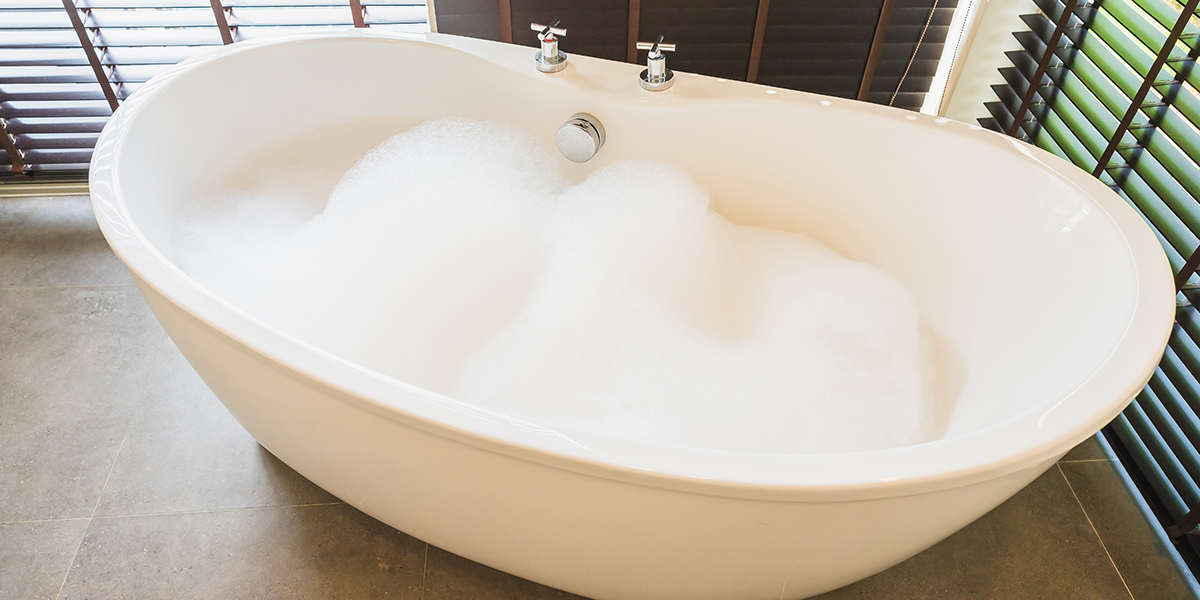Causes for Effluent Rising Through the Bathtub
Causes for Effluent Rising Through the Bathtub
Blog Article
What are your beliefs on Water Coming up Bathtub Drain?

Sewage back-up in the bath tub can be a traumatic and unhygienic trouble for any type of property owner. Not just is it troublesome, however it likewise presents major health risks and suggests underlying concerns with the plumbing system. Comprehending why sewage is showing up through the bath tub is crucial for taking suitable activity to address the problem efficiently.
Introduction to the Issue
Usual Factors for Sewage Back-up
Blockages in the Drain Line
One of one of the most typical reasons for sewage backup is an obstruction in the sewer line. This can occur because of the build-up of debris, grease, or international objects in the pipes, stopping correct flow and triggering sewer to support right into your bathtub.
Tree Origin Intrusion
Tree roots seeking wetness and nutrients can penetrate drain lines with small splits or joints. In time, these roots can expand and increase, triggering significant damages to the pipelines and leading to sewer back-up issues.
Comprehending the Problem
When sewage starts backing up right into the tub, it's a clear sign of a problem with the water drainage system. The wastewater that ought to be moving away from your home is rather discovering its back into your home, which can cause considerable damages and health hazards.
Possible Reasons
Numerous elements can contribute to sewer backup in the bath tub. From clogs in the drain line to issues with the plumbing infrastructure, recognizing the root cause is vital for finding an option.
Aging Facilities
Older homes might have obsoleted plumbing systems that are much more vulnerable to deterioration, splits, and damage. As pipelines age, they become more prone to leakages and clogs, raising the probability of sewage backup incidents.
Heavy Rainfall or Flooding
Throughout durations of heavy rainfall or flooding, the drain system may become overloaded with excess water, triggering backups and overflows. This can lead to sewer supporting right into bathtubs and other components inside the home.
Indicators of Sewer Back-up
Foul Odors
Unpleasant smells originating from drains pipes or fixtures, particularly in the bathroom, might show sewage back-up concerns. These smells are usually solid and relentless, indicating an issue that needs immediate interest.
Slow Draining Fixtures
Bath tubs, sinks, and toilets that drain gradually or not at all could be experiencing sewer backup. If multiple components are affected simultaneously, it's likely that the problem stems from a typical factor, such as the main drain line.
Gurgling Sounds
Strange gurgling or gurgling noises originating from drains pipes when water is running elsewhere in the house are a sign of air trapped in the plumbing system. This air accumulation can result from sewer backup and need to be examined without delay.
Wellness Dangers Associated with Sewer Backup
Contamination of Supply Of Water
Sewer back-up can contaminate the water in your home, positioning a serious health danger to you and your family members. Direct exposure to polluted water can lead to gastrointestinal concerns, skin infections, and various other illnesses.
Mold Development
Moisture from sewage backup can develop perfect conditions for mold development in your house. Mold and mildew spores can exacerbate respiratory troubles and cause allergic reactions in sensitive people, making prompt cleanup important.
Spread of Disease
Sewage contains hazardous bacteria, infections, and parasites that can cause a series of illness, including liver disease, cholera, and gastroenteritis. Entering into contact with sewer or infected surface areas puts you at risk of infection.
Cleaning Up After Sewer Back-up
Disinfection Procedures
Completely disinfect and sanitize influenced locations after sewage back-up to remove unsafe microorganisms and stop mold development. Use suitable cleaning products and safety gear to guarantee safe and effective clean-up.
Reconstruction of Influenced Areas
Fix any type of damages to floor covering, wall surfaces, or components triggered by sewage back-up. Depending on the extent of the damage, you might require to change carpets, drywall, or other materials to recover your home to its pre-loss condition.
Immediate Actions to Take
Turning Off Supply Of Water
In the event of sewer back-up, it's necessary to turn off the water to stop more contamination and damage. Locate the main water shutoff valve in your home and closed it off until the concern can be dealt with.
Speaking To a Professional Plumber
Taking care of sewage back-up is not a do it yourself job. Get in touch with a certified plumber with experience in taking care of sewage-related problems to examine the circumstance and perform essential repair work or cleanups.
Preventing Contact with Infected Water
Up until the sewage backup is resolved, avoid contact with contaminated water to prevent the spread of bacteria and virus. Put on safety gear if you should remain in the afflicted location and clean your hands extensively afterward.
Preventive Measures
Normal Upkeep of Drain Lines
Schedule normal evaluations and maintenance of your drain lines to identify and deal with potential issues before they intensify into major issues. This can consist of clearing out particles, evaluating for tree root invasion, and fixing any kind of damaged pipelines.
Mounting Backwater Valves
Think about setting up backwater valves in your plumbing system to stop sewage from flowing back into your home throughout durations of heavy rainfall or flooding. These valves automatically close when water draws back up, shielding your residential or commercial property from contamination.
Correct Disposal of House Waste
Avoid flushing anything apart from bathroom tissue and human waste down the commode to prevent clogs and obstructions in the sewage system line. Dispose of grease, oil, and various other household chemicals effectively to decrease the risk of plumbing issues.
Why Is Water Backing Up in My Bathtub When I Flush My Toilet?
What to do about a sewer line clog
First, don’t bother with plunging. No amount of plunging will dislodge the clog in a sewer line. The clog is too far away. Plungers are for clogs in the toilet itself, not the sewer line. Plus, the most likely causes of a sewer clog are:
Tree roots Flushed toys or feminine products Grease buildup Those items don’t move easily. And in the case of tree roots, the roots need to be cut out of the pipe and the pipe will need to be repaired.
You’ll need a closet auger. A closet auger is a type of plumber’s snake with a protective cover to keep from scratching the delicate porcelain toilet. If the clog is further down, you may need to remove the toilet or use one of your cleanouts to get to the clog.
We also recommend doing a video inspection of the drain to ensure that the cause of the clog has been completely removed. Otherwise, you could have the same problem again in a few days or weeks.
https://mspplumbingheatingair.com/blog/why-is-water-backing-up-in-my-bathtub-when-i-flush-my-toilet

Hopefully you enjoyed reading our topic on Why is There Sewage Coming Up Through the Bathtub. Thanks so much for taking a few minutes to read through our blog post. Do you know somebody else who is interested in the subject? Please feel free to promote it. We enjoy reading our article about Why is Sewage Backing Up Into My Bathtub?.
Call Today
Report this page